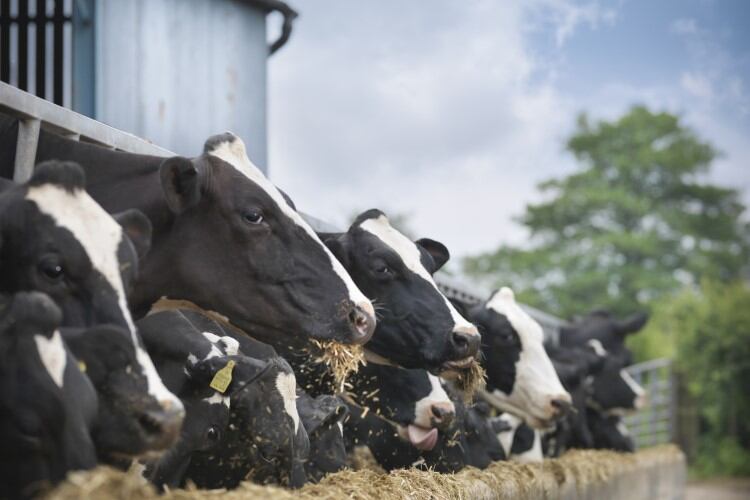The product is an Asparagopsis-based seaweed oil extract formulated by Hawaii-based start-up Symbrosia, which currently markets a freeze-dried seaweed feed additive.
Asparagopsis, a type of red seaweed, has been found to reduce livestock methane emissions by up to 80%, though research has found variations in its efficacy when it comes to ruminants. For example, a 2019 study found that an Asparagopsis specie used as a feed additive decreased methane production and intensity by over 26% without affecting milk yield or feed intake, rising to over 60% and 42% respectively when the dose was doubled. (See ‘sources’ below for more information.)
Symbrosia’s existing product, SeaGraze, is made from Asparagopsis taxiformis, which the company claims can achieve double the methane reduction of its competitors with the same amount of product inclusion. But SeaGraze is produced through freeze-drying, an energy-intensive process that involves dehydration to preserve the product's heat-sensitive compounds.
A study with Cornell University’s College of Agriculture and Life Sciences (Cornell CALS), supported by Danone North America, is aiming to prove the effectiveness of an Asparagopsis-based seaweed oil extract compared with the company’s existing fare.
Symbrosia explained that oil absorbs the compounds found in seaweed effectively, thus removing the need for drying. In this form, the product is also expected to increase the level of bioactive transference and solubility.
Using the new method would also maintain more of the important compounds and nutrients. If the study is successful, the oil will be made commercially available – which is where Danone’s interest lies.
Asked what potential the company sees in this product, a spokesperson for Danone North America told DairyReporter: “As a part of our regenerative agriculture strategy and Danone Impact Journey to reduce GHG and methane from our supply chain, we are actively working with farming partners to help assess and implement new tools and technologies that are both helpful to the farm and create improved environmental performance. Symbrosia’s products are a part of a broader strategy to bring as many tools to our farming network as possible.
“We expect that Cornell’s expertise will help confirm positive impacts on methane emissions, animal welfare and overall milk quality so that this product can be an option for commercial farms as soon as practical.”
The study has been designed by Joseph McFadden, associate professor of dairy cattle biology, whose research group also leads the development of the Cornell Accelerating Livestock Innovations for Sustainability program. DairyReporter understand that it’s a university-based trial with experiments taking place with a subset of the Cornell Dairy herd. The series of experiments that will assess the impact of Bromoform on energy utilization in dairy cattle as well as safety and efficacy will take place over the next 1-2 years.
Sources:
Mitigating the carbon footprint and improving productivity of ruminant livestock agriculture using a red seaweed
Kinley, D. R., et al
Published: 20 June 2020, Journal of Cleaner Production
DOI: 10.1016/j.jclepro.2020.120836
Inclusion of Asparagopsis armata in lactating dairy cows’ diet reduces enteric methane emission by over 50 percent
Roque, M. B., et al
Published: 20 June 2019, Journal of Cleaner Production
DOI: 10.1016/j.jclepro.2019.06.193

